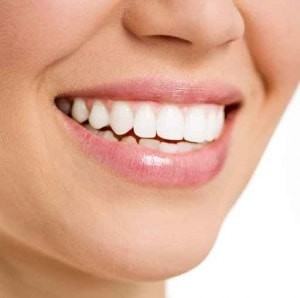
Understanding the pH balance of your mouth and what affects this balance is just one important contributing factor for your smile. So, what causes the pH balance to increase and decrease throughout the day? pH balance is typically associated with the foods and beverages that we consume, but there are plenty of other factors to consider. To explain more on this subject, dental implant provider, Dr. Ray Snider gives his readers here at Lake Country Dental an in-depth look at the importance of pH balance in your mouth.
Why is the pH Balance Important?
There have been plenty of studies that have shown that the pH balance of the body will affect your overall wellness. Acidity or a lower pH have both been associated with a variety of health conditions including heart disease, diabetes, and obesity. On the flip side, alkaline levels have been linked to lower risk for high blood pressure and strokes as well as improvements to brain function and memory. With that being said, this same concept remains true when you apply it to dental health. The pH balance of your mouth will affect the health of your teeth, gums, and jawbone.
The basis of the pH scale goes as follows: The scale is ranked from 1 to 14 with 1 being the most acidic and 14 being the most alkaline. 7 is considered neutral but the real number you want to keep in mind is 5.5. A pH balance of 5.5 is important because it indicates when teeth will begin to demineralize. As the pH balance of your mouth reaches 5.5 and below, your teeth will essentially begin to dissolve. The best way to control the pH balance of the mouth is to track the beverages and foods you consume. The consumption of acidic foods and beverages will cause the pH in plaque to quickly fall below 5.5. This occurs because the bacteria in your mouth will metabolize the foods and drinks you ingest. As this occurs, the changes in pH balance can make it the ideal environment for cavity-causing bacteria to flourish.
The Role of Sugar for pH Balance
You’ve probably heard that a sweet tooth can lead to a rotting mouth. Sugar intake is strongly linked to tooth decay because sugars that are found in table sugar, glucose, fructose, lactose, and other cooked starches are perfect for bacteria to feed upon. This gives bacteria more fuel to create the acid that will wear away at your tooth enamel. After a period of time, your enamel will erode away and the inner layers of your tooth, which includes the dentin and tooth pulp containing blood vessels and nerves, will be exposed to harmful bacteria.
This shift in the pH of your mouth won’t just allow for harmful bacteria to thrive and wear away at your teeth, but it will also harm any good bacteria in our mouth. There is a range of types of bacteria in the mouth that are either harmless or beneficial for us. Some healthy bacteria known as probiotics help with the digestion of food while other helpful bacteria can protect our teeth and gums. As we mentioned before, changes in the pH of your mouth can often be attributed to our dietary choices. Eating things like candies, sodas, breads, and pastas will provide the bacteria with fuel to create lactic acid, which lowers the pH of your mouth.
Contact our Office in Fort Worth
In many instances of pH balance, dietary changes along with a strict oral hygiene routine can help to remedy the problem. For patients that are already dealing with severe problems such as tooth loss, we recommend looking into restorative treatment with dental implants. Dental implants provide a stable restoration that looks as realistic as your natural teeth. Interested in starting your implant treatment? Contact our Fort Worth dental implant office today to schedule your no-obligation consultation with Dr. Snider!
